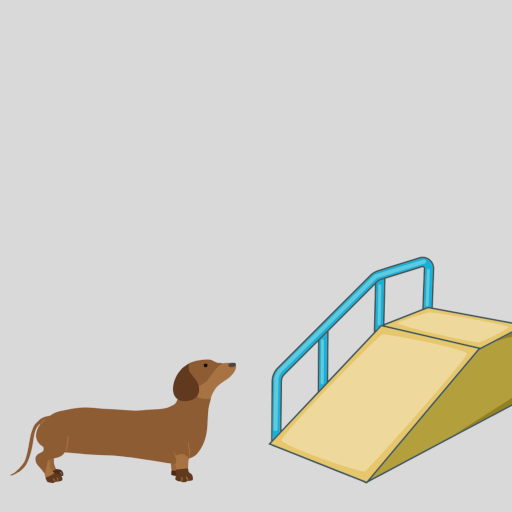Is an obedient dachshund really a dachshund?
Is an obedient dachshund really a dachshund?
Back in March in our blog post ‘Famously Disobedient? Obedience training and your dachshund‘ we reported on the perhaps surprising fact that two dachshund teams had made it to the Crufts ‘Obreedience’ finals in Birmingham, UK. We examined how you might best try to achieve a basic level of obedience with your own dachshund.
There’s been a lot of publicity recently about The Intelligence of Dogs, a book on dog intelligence by Stanley Coren of the University of British Columbia in Vancouver. Coren, a professor of canine psychology, sets out his explanation for the degree to which breeds of dogs differ in canine intelligence. The book was first published back in 1994, and was based on data from surveys with professional US and Canadian canine obedience judges (there was a second edition in 2006).
Three aspects of dog intelligence
Coren set out three aspects of dog intelligence: instinctive intelligence, adaptive intelligence, and working and obedience intelligence. Of these three aspects, Coren offers a breed ranking for the latter category - working and obedience intelligence. This aspect of dog behaviour seems to have received the most public attention, perhaps because the concept refers to a dog’s ability to learn from humans, and is therefore a natural reference point for us. We want to understand those aspects of our dogs’ behaviour that we humans can influence, not least because responsible owners need to instil at least the basics of obedience to ensure safety. More than that however, people have always been fascinated by the human-canine bond.
Dachshunds and working/obedience intelligence
How does Coren explain working and obedience intelligence? And where do our low slung dachshund friends appear in the breed rankings?
The study combines two factors to generate the working/obedience rating of a breed. Firstly, how many repetitions of a new command are typically needed before a dog of that breed understands that command. Secondly, having learnt a command, what proportion of the time does the dog obey that command when it’s given to them.
Dachshunds fall into the ‘average’ category. As a breed dachshunds fall into the fourth out of six ranked categories of working and obedience intelligence. Put another way, dachshunds are 92nd out of the 138 dog breeds assessed. Coren’s research found that it took 25-40 repetitions of a new command before breeds - including dachshunds - in this average category understood the command. And having learnt the command, dachshunds and the other average-ranked breeds only obeyed the command around 50% of the time. Sounds about right!
None of this is the least surprising to those who live with dachshunds. In our household we’re lucky to get recall 50% of the time, and we constantly have to retrain our Sunny on such basic things as techniques for walking properly on a lead. We wouldn’t have it any other way.
Compare dachshunds with the working and obedience intelligence of top-ranking breeds, such as the Border Collie or Labrador Retriever, who need fewer than 5 repetitions of a command to understand it, and will obey a command first time round 85% of the time. Respect.
Reviews of this book suggest that when these rankings were first published, international dog breed authorities as well as dog owners disputed the rankings, but many years later both the methodology of the study and the ranking have become widely accepted as valid.
We like to tell ourselves that if our dachshund was consistently obedient, he would no longer be a dachshund. We think of him as semi-human, and surely this is down to his individuality, stubbornness, and only partial compliance with commands. As a working dog, the standard dachshund is persistent, ‘courageous to the point of rashness’ (according to the UK Dachshund Breed Council), bred to hunt and track, and to go to ground to retrieve bigger and fiercer badgers. This characteristic is what Coren refers to as the ‘instinctive intelligence’ of a breed: the ability to perform the tasks it was bred for. Dachshunds have this in bucket-loads.
Happy obedience training!
Coren, Stanley (1995). The Intelligence of Dogs: A Guide To The Thoughts, Emotions, And Inner Lives Of Our Canine Companions. New York: Bantam Books. ISBN 0-553-37452-4.






